45 standard labels for chemical containers
Chemical Hazardous Waste Containers: EPA and DOT Labeling Requirements For DOT purposes, the word "labeling" is a very specific thing and is applicable only to bulk-packaging (see above). "Labels" are always diamond-shape; and their size must adhere to international standards, measuring at least 4″ x 4″ (100 mm) on each side, square-on-point. Everything else (applicable to non-bulk packaging) is merely ... 6 Tips To Ensure GHS Compliance For Small Chemical Container Labels ... 2) Label all secondary containers. If a chemical is supplied to the workplace with a GHS label, it must be maintained. If the chemical is transferred to a secondary container, such as a tank or spray bottle that stays in the workplace, employers may label it with information from the original GHS shipping label or safety data sheet.
Secondary Container Label Requirements | HCL Labels These secondary containers are required to be labeled with a GHS chemical label, given if any of the following events occur: -The material is not used within the work shift of the individual who makes the transfer. -The worker who made the transfer leaves the work area. -The container is moved to another work area and is no longer in the ...
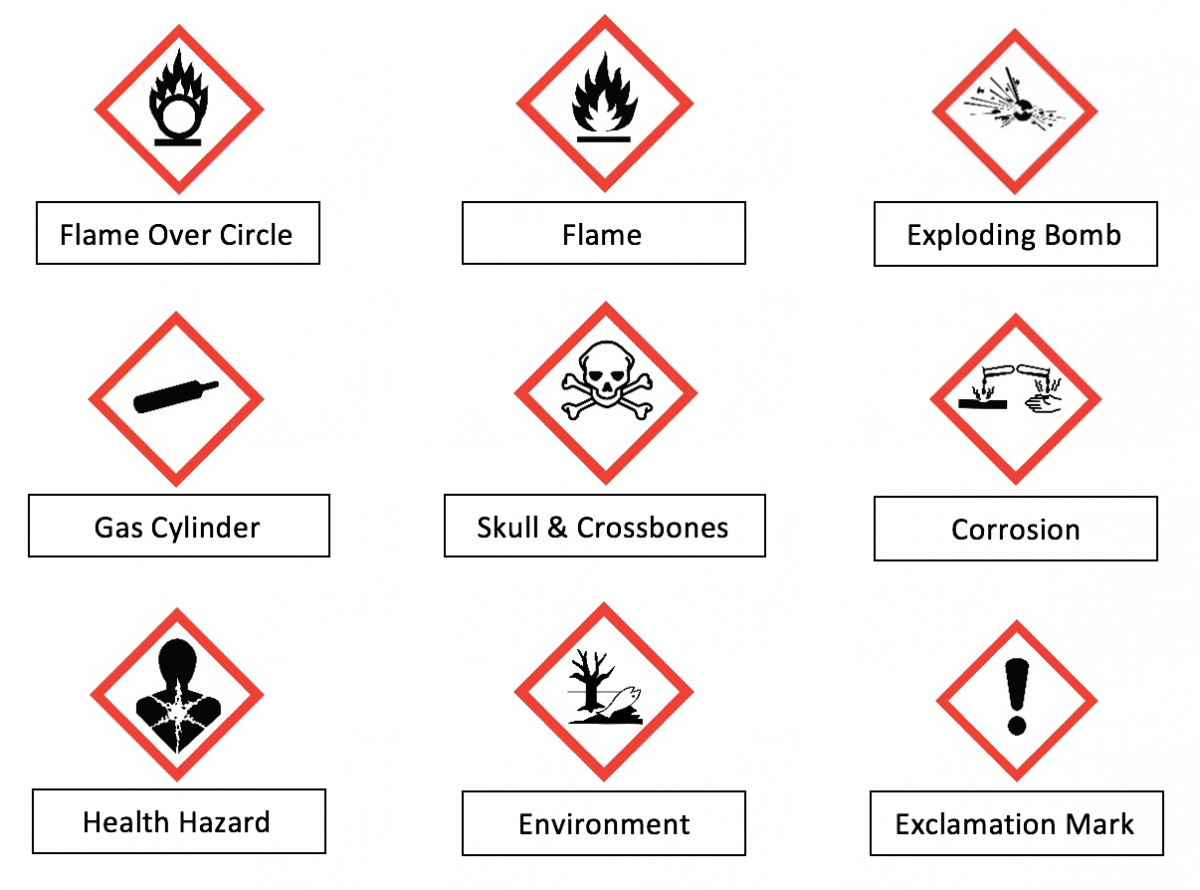
Standard labels for chemical containers
Labeling of Secondary Containers | Occupational Safety and Health ... Scenario: Your company purchases secondary containers for chemicals, which are bottles with pre-printed (embossed) labels that contain a specific chemical name (e.g., methanol, acetone), National Fire Protection Association (NFPA) diamond, and health and physical hazard pictograms. The labels do not include the manufacturer's name and address, nor does the label have a hazard statement. PDF HEALTH & SAFETY Chemical Container Labeling All containers other than the manufacturer's container (i.e. squeeze or glass bottles, flasks, Eppendorf tubes, etc.). 4 Label information must be legible and in plain English. 5 Chemical identity and hazard warning should already be printed on the manufacturer's container. 6 Recommended for best practices, though not required per regulation. 7 4 Quick Tips to Help You Ace OSHA Secondary Container Labeling - Avery In relation to the use of hazardous chemicals, OSHA HazCom Standard 1910.1200(c)defines Immediate Useas "the hazardous chemical will be under the control of and used only by the person who transfers it from a labeled container and only within the work shift in which it is transferred." Work Area Definition
Standard labels for chemical containers. Information on hazardous chemical labels | Safe Work Australia A hazardous chemical is correctly labelled if it is packed in a container and has a label written in English. Pictograms and text on the label should be clear. The label must also be firmly fixed to the hazardous chemical's container. It should not be hidden or in a spot where it could be removed, such as on the lid. The label must include the: GHS Labeling Requirements: The Definitive Guide [2021 Update ... - Luminer All hazardous chemical labels must be made with six different indicators. These GHS label requirements are meant to succinctly communicate key information about what is inside. However, the GHS takes into consideration that, sometimes, it's not possible to keep workers safe with only these six label requirements, which is why it also allows for supplemental information. Container Labeling: A Key to Compliance - Occupational Health & Safety Containers also must have the following identification on the container, label or tag [29 CFR 1910.1200 (f) (1)]: The identity of the hazardous chemical Appropriate hazard warnings The name... Chemical Container Labeling - Laboratory Safety Use these methods to label your secondary chemical containers: Method 1: Containers ≥ 50 mL Method 2: Test Tubes, Vials, etc. STEP 1: Write out the entire name of the chemical. AND STEP 2: Indicate the GHS Hazard Class (es). Use self-stick GHS Pictogram (s) to identify the chemical hazards, OR
Container Labels | Environmental Health & Safety | Michigan State ... Container Labels. Chemical Hygiene Plan 3.4, November 2018. All containers of hazardous chemicals must be labeled with the name of the chemical and the hazard (s), if not provided by the manufacturer. If a chemical has more than one hazard, it must be labeled with both hazards. For example, acetaldehyde is both a flammable and a carcinogen, and ... GHS Labels for Secondary Containers | HCL Labels, Inc. HCL Labels, Inc. offers a library of over 800 ready-made chemical GHS labels for secondary containers. GHS-labeled secondary containers are required by state and federal law to be labeled with a GHS Safety label, indicating which chemical is in use. ... and the OSHA HazCom Standard. Have questions, custom requests, or can't find what you're ... Chemical Container Labels - University of Houston EHS has prepared a secondary chemical container label template for your use. The template is formatted for printing on Avery Template 5163 (2" x 4" label, 10 labels per page, 8½" x 11" page). The template can be resized to fit smaller containers. The example photo below can also be used to make labels in bigger sizes. Waste Labels LABELING OF CHEMICAL CONTAINERS - periodni.com LABELING OF CHEMICAL CONTAINERS Preparation of solutions GHS - Hazard pictograms Formula: Name: Molar mass: Concentration: Date: Purpose: Prepared by: Frame color: Molar mass: Prepared by: Purpose: Date: 2022/10/09 LABEL 97x42.3 mm (6x2) Start position: Number of labels: Date: 2022/10/09 Purpose: Prepared by: MM = LABEL 64x36 mm (7x3)
Workplace Labels for Chemicals - Washington State University Workplace Labels for Chemicals. Washington Administrative Code (WAC) 296-901, Hazard Communication Standard, states that all hazardous chemical containers in the workplace must be labeled.This includes secondary, or workplace, containers into which chemicals have been transferred from the shipped, or manufacturer's container (e.g. cleaners/disinfectants transferred to spray bottles). Chemical Container Labels | EHS - University of Washington Chemical container labeling is one of the most effective and efficient ways to communicate hazard information to your coworkers and prevent accidents and injuries. Clear and consistent labeling that follows the Hazard Communication Standard is required in all University of Washington facilities including laboratories, shops, clinics, and other locations where employees use, store, and transport chemicals. Chemical Storage Labels | Creative Safety Supply Workplaces with hazardous materials must label their storage containers. Whether you need to label a chemical storage cabinet or a chemical drum, we have the labels you need. Shop now! Get Catalog | Get Free Samples. 1-866-777-1360 M-F 6am - 4:30pm PST. Products. Floor Marking. Safety Labels for Hazardous Chemicals | NSTA • Labels on containers used for storing hazardous chemicals must include the chemical identification and appropriate hazard warnings. • The contents of all other chemical containers and transfer vessels, including beakers, flasks, reaction vessels, and process equipment, should be properly identified. Collection and storage of waste
Chemical Container Label Requirement | EMC - EMC Insurance Label Requirements OSHA 29 CFR 1910.1200 (f) (6) requires that health hazard and/or physical hazard criteria of all chemicals be determined, and that information appear on the label. Each label must contain the following information: Identity of the material Signal word Hazard statement (s) Pictogram (s)
GHS Container Labels | EHS - Anschutz Medical Campus GHS Container Labels. OSHA has adopted the new hazardous chemical labeling requirements as part of the effort to harmonize with the United Nation's Globally Harmonized System (GHS) of Classification and Labeling of Chemicals. The new label provides information to workers on the specific hazardous chemical. The container limits the label size ...
Download secondary chemical container labels | EHS If your laboratory uses secondary containers filled with chemicals, the secondary containers must comply with OSHA's Hazard Communication Standard for Labels and Pictograms. For your convenience, EH&S designed secondary chemical labels that can be downloaded from our website and printed onto Avery 5163 labels. You may choose from three designs:
Chemical Container Labeling - Northwest Safety The Hazard Communication Standard (HCS) describes chemical labels as information provided through a group of written, printed, or graphic appropriate elements concerning a hazardous chemical. These should be that placed on the immediate container of a hazardous chemical. The Hazard Communication Standard also is now known as the Right to Understand Standard, requires chemical manufacturers, importers, or distributors to ensure that each container of hazardous chemicals is labeled, tagged, or ...
Proper Labeling Chemical Containers - Hazcom ... - OSHA Review The chemical manufacturer must ensure that primary label is marked with the following information: Product identifier - The name or number used for a hazardous chemical on a label or in the safety data sheet (SDS). Signal word - A word used to indicate the relative level of severity of hazard and alert the user to a potential hazard.
Labeling of small containers in the laboratory | Occupational Safety ... The Laboratory standard requires that labels on incoming containers of hazardous chemicals not be removed or defaced, per paragraph 1910.1450 (h) (1) (i), but does not have a specific labeling requirement for secondary containers of hazardous chemicals in a covered laboratory.
Container Labeling | Office of Environmental Health and Safety | ECU Labels of incoming manufactured products or chemicals must contain 6 key elements: Signal Word Pictograms Manufacturer Information Precautionary Statement(s) Hazard Statement(s) Product name or identifiers OSHA requires that labels on incoming containers of hazardous materials must not be removed or defaced until the container is empty and rinsed.

SDS OSHA Data Labels for Chemical Safety Data 4 x 3 Inch GHS Secondary Container Label-250 Pcs MSDS Stickers with GHS Pictograms Write-in Hazard ...
Requirements for Shipped Container and Workplace Labels Requirements for Shipped Container and Workplace Labels As part of the 2012 revision of the Hazard Communication Standard, 29 CFR 1910.1200, OSHA adopted new hazardous chemical labeling requirements for shipped containers that align with the United Nations' Globally Harmonized System (GHS) of Classification and Labeling of Chemicals.
Chemical Waste | YSU Waste Container Labeling All waste containers must be labeled with the following information Chemical Name Chemical Quantity (% and volume) Building and Room Number Department and Faculty Waste Accumulation Start Date Printable Container Labels are accessible below: 3.5 X 5 YSU Waste Label 4 x 7 YSU Waste Label All empty containers must be placed onto the Empty Container Cart, Bin, or ...
A Guide To Labeling Systems For Chemicals Two column labels are mostly seen on large containers, like 50 gallon drums. If less information is needed, or the label needs to fit a small package, you can use chemical labels laid out in a single column: - Standard Industrial Classification (SIC) code or CAS number and product name - GHS pictograms - Signal word - Hazard statements
PDF Chemical Labeling Guidelines - UGA 2.1: Labeling is not required of secondary containers which are intended only for the immediate use of the person who mixes the chemical or performs the transfer from the original labeled container. 2.2 All secondary chemical containers can have a National Fire Protection Agency (NFPA)
Chemical Safety & Identification Labels | BRADY - BradyID.com Chemical Container Labels. Chemical safety labels are used for identification of hazardous material storage, chemical containment areas and acids or solvents. Chemical identification provides the warnings and information that keep your facility and workers safe. Chemical labels can prevent injuries, costly mistakes and keep your facility in ...
4 Quick Tips to Help You Ace OSHA Secondary Container Labeling - Avery In relation to the use of hazardous chemicals, OSHA HazCom Standard 1910.1200(c)defines Immediate Useas "the hazardous chemical will be under the control of and used only by the person who transfers it from a labeled container and only within the work shift in which it is transferred." Work Area Definition
PDF HEALTH & SAFETY Chemical Container Labeling All containers other than the manufacturer's container (i.e. squeeze or glass bottles, flasks, Eppendorf tubes, etc.). 4 Label information must be legible and in plain English. 5 Chemical identity and hazard warning should already be printed on the manufacturer's container. 6 Recommended for best practices, though not required per regulation. 7
Labeling of Secondary Containers | Occupational Safety and Health ... Scenario: Your company purchases secondary containers for chemicals, which are bottles with pre-printed (embossed) labels that contain a specific chemical name (e.g., methanol, acetone), National Fire Protection Association (NFPA) diamond, and health and physical hazard pictograms. The labels do not include the manufacturer's name and address, nor does the label have a hazard statement.
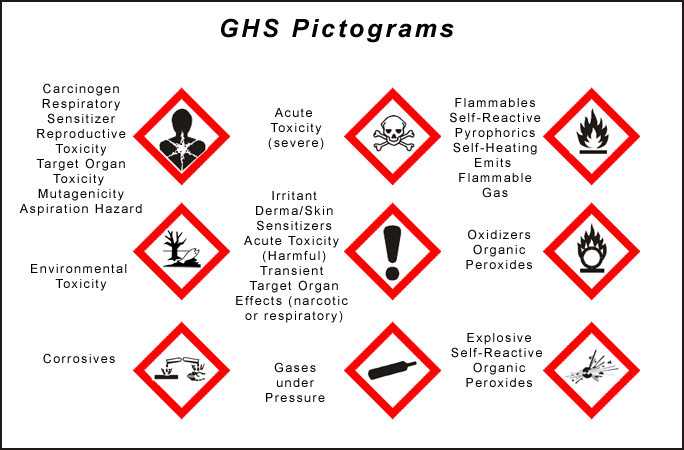
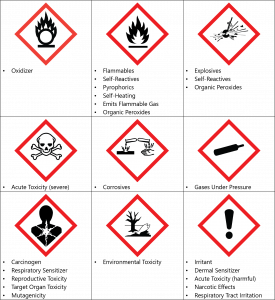

![New OSHA Hazard Communication Regs [What Employers Need to Know]](https://www.hni.com/hs-fs/hub/38664/file-31592697-jpg/images/oshahazardcommunicationstandardpictograms2.jpg)
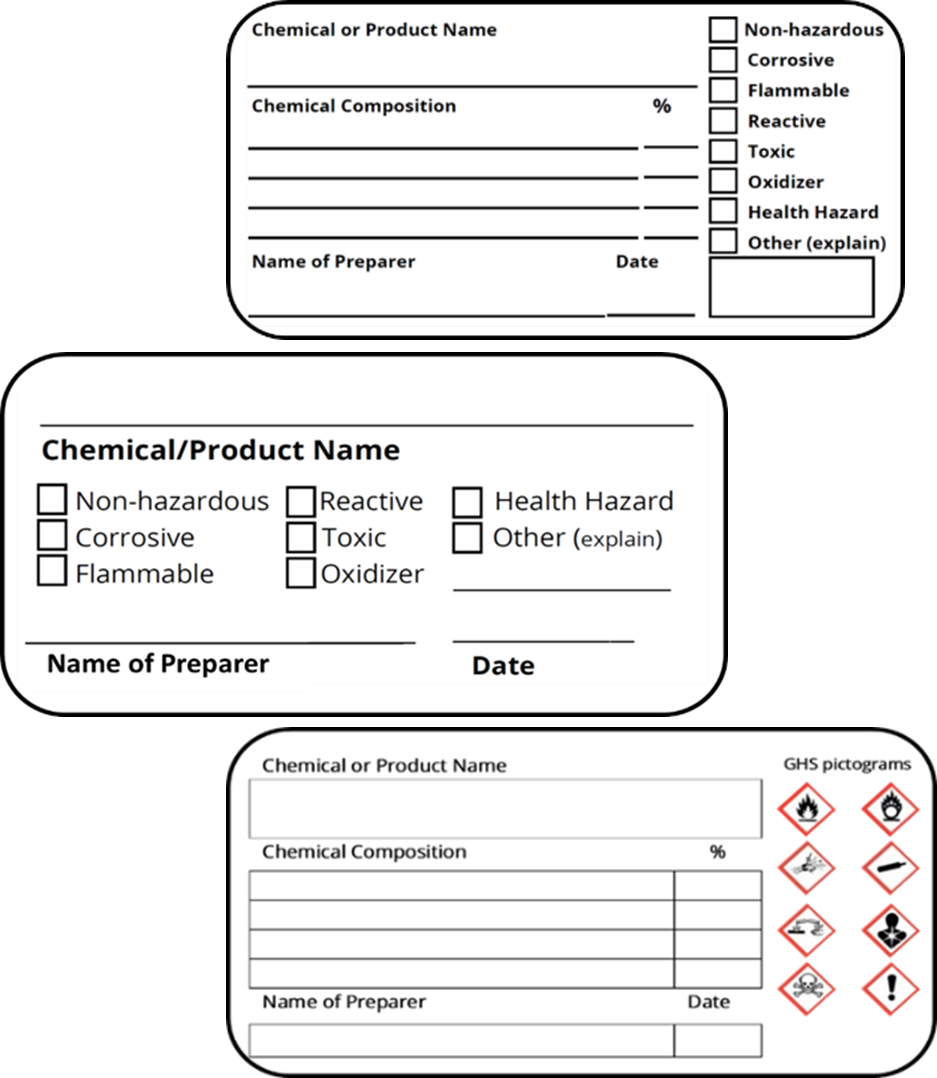
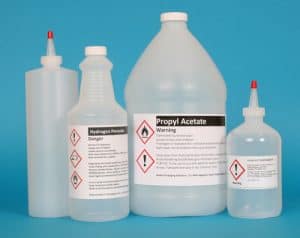
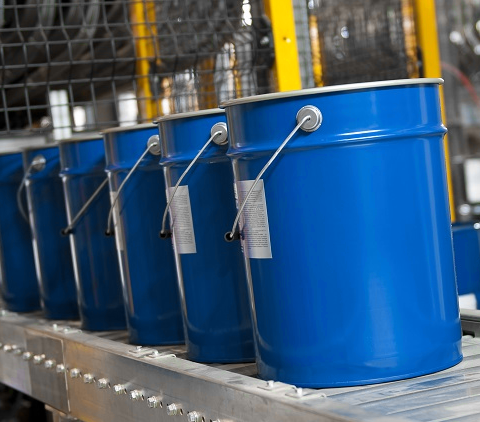
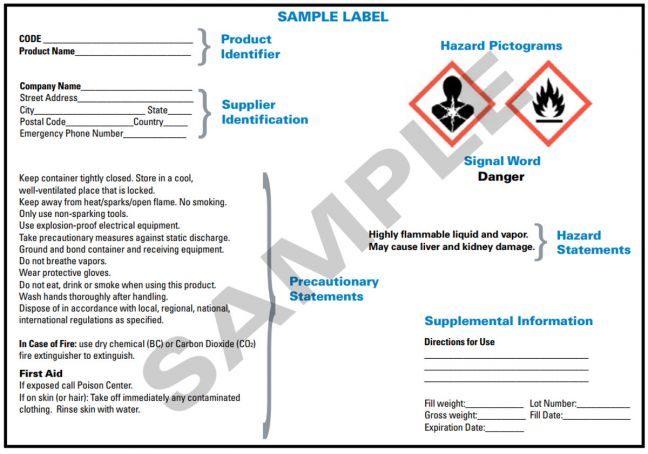


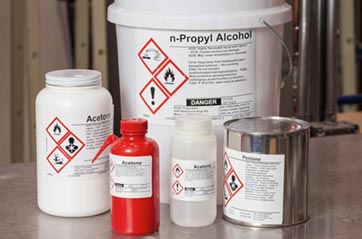



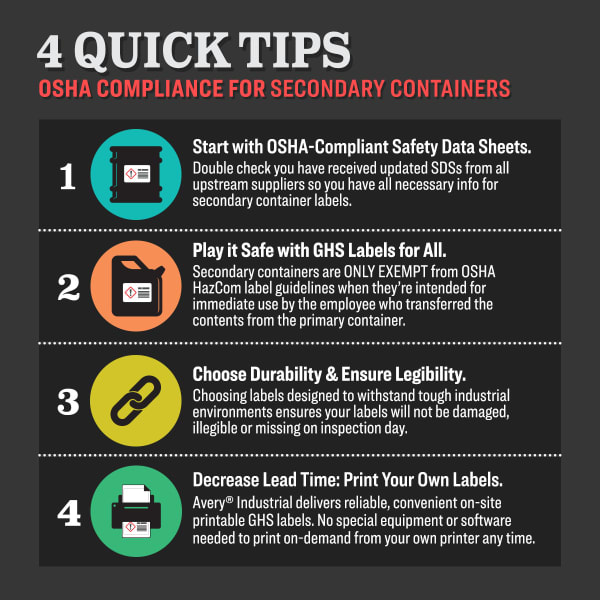

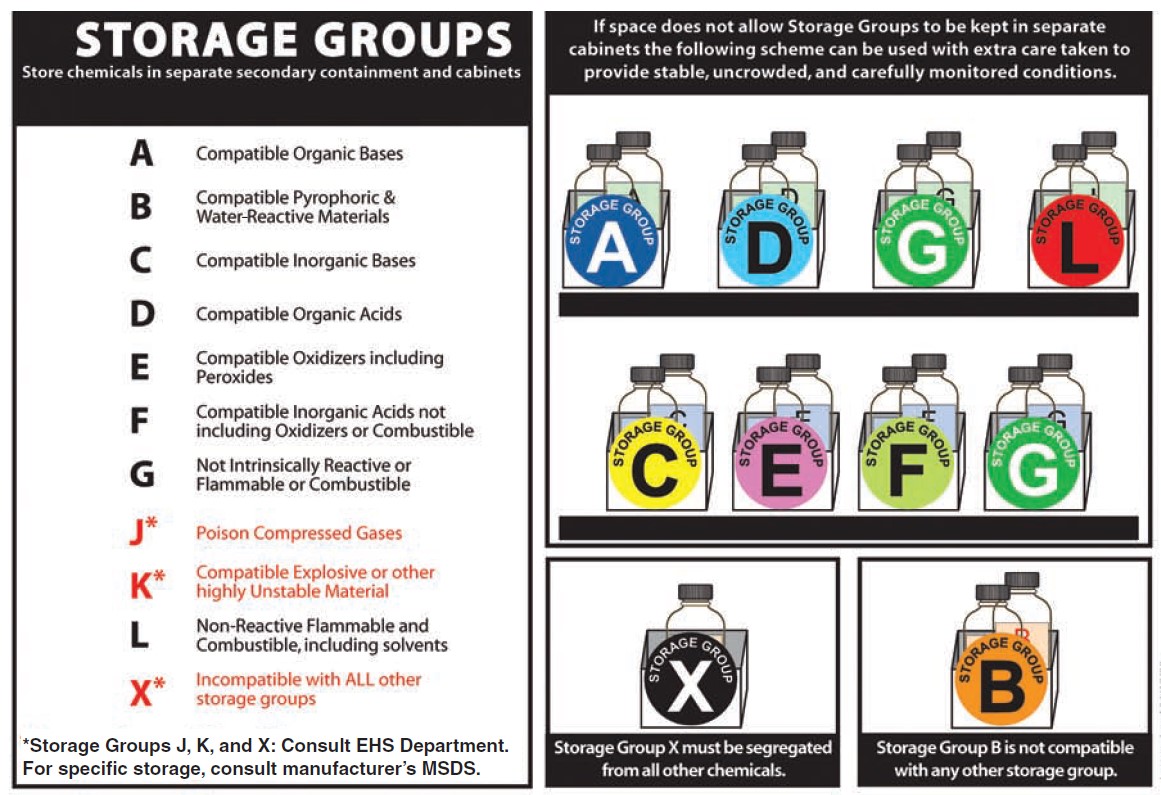

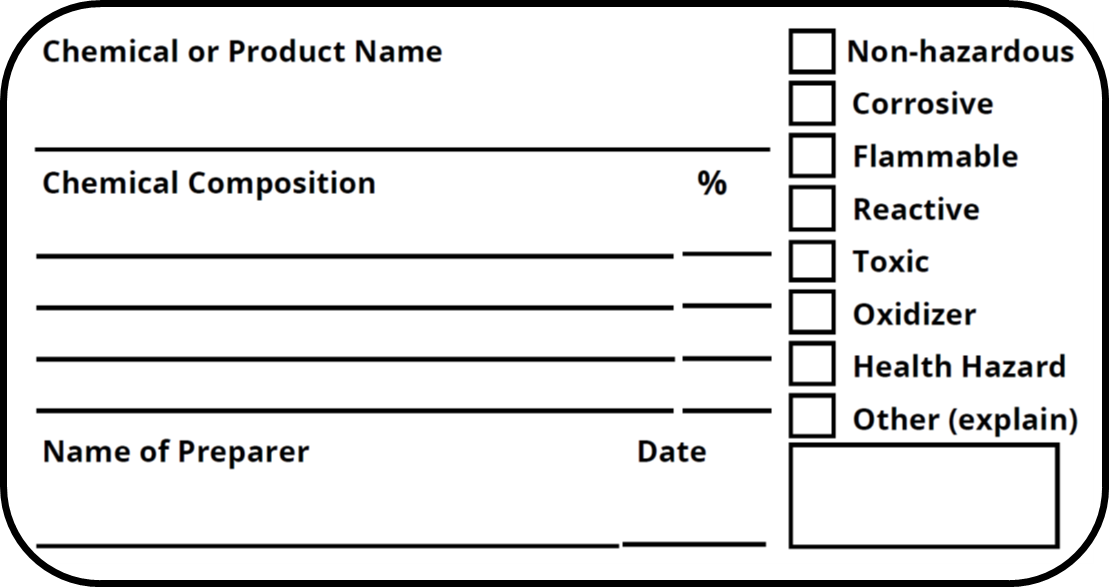
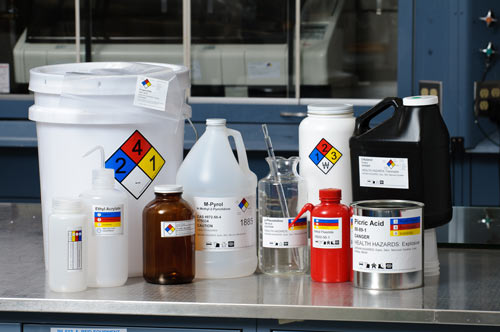




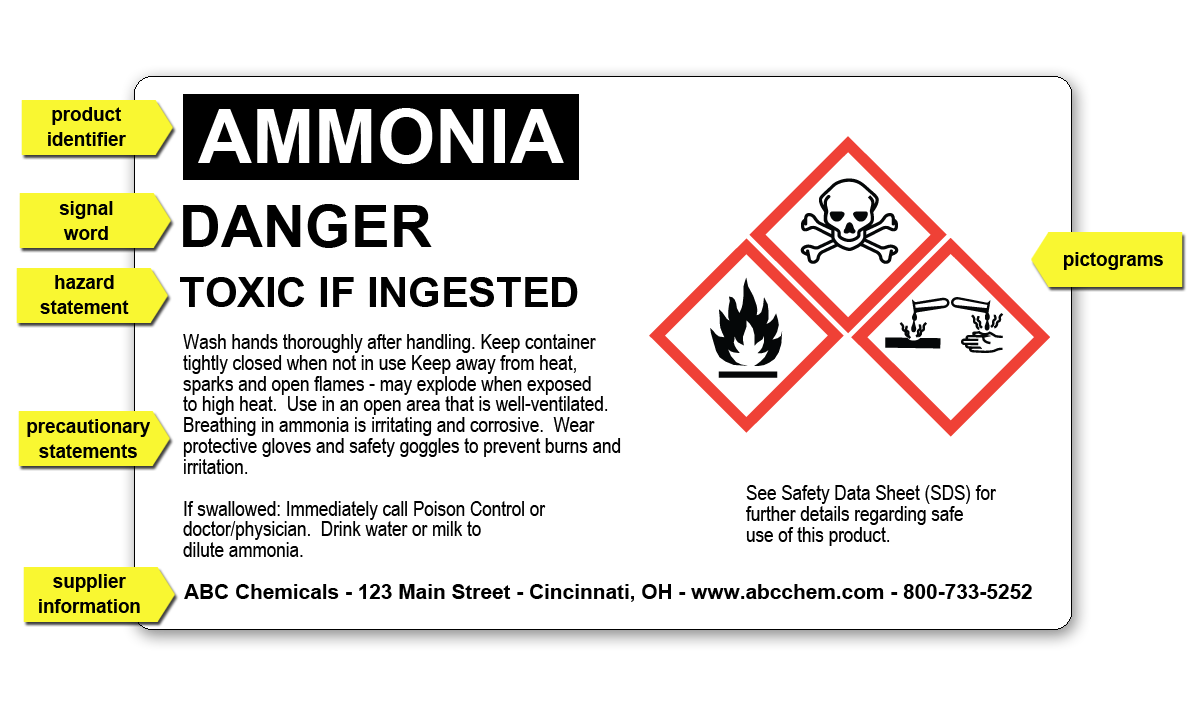
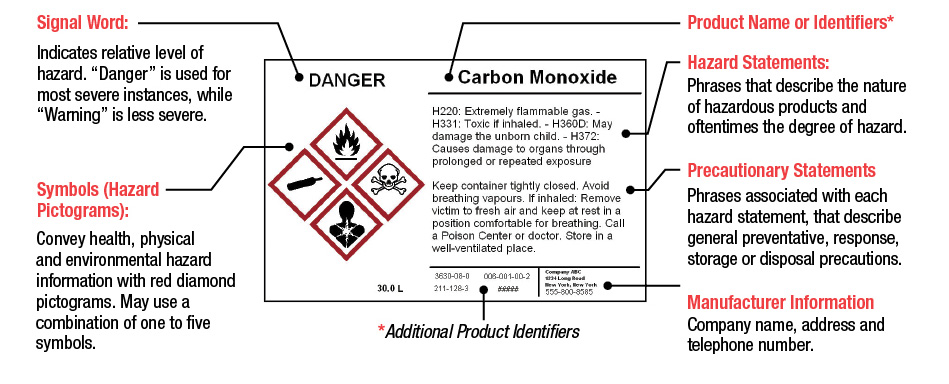








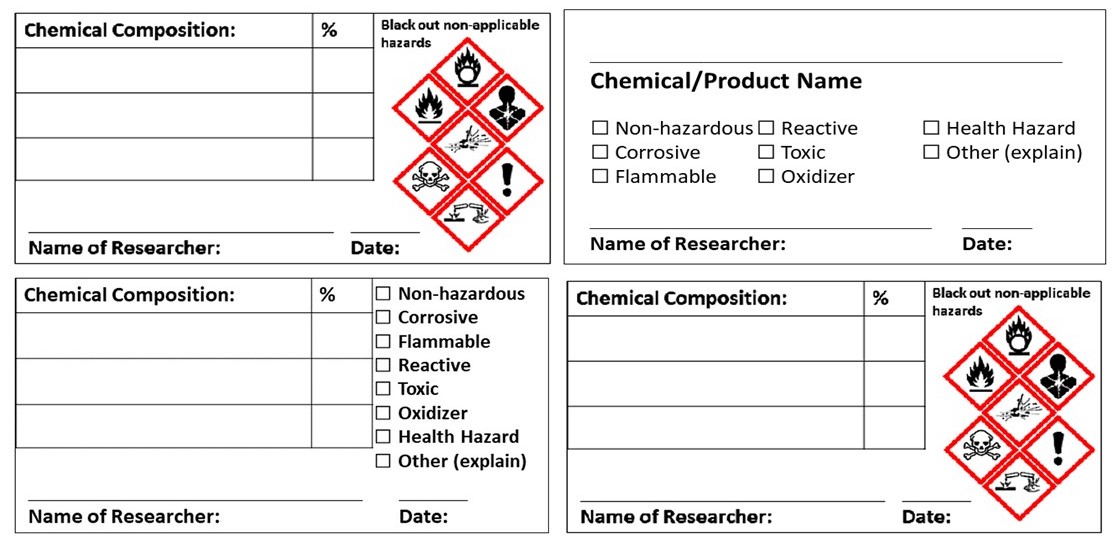
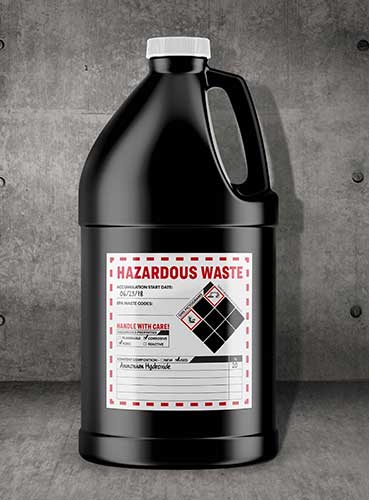

Post a Comment for "45 standard labels for chemical containers"